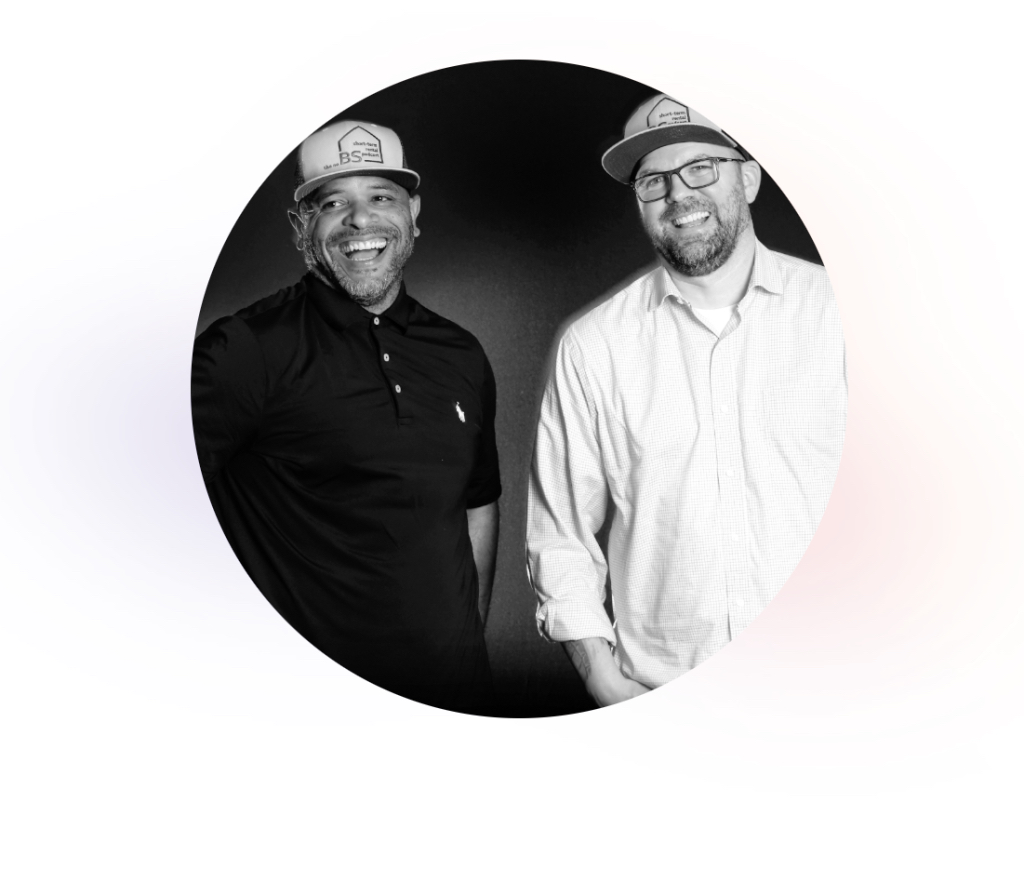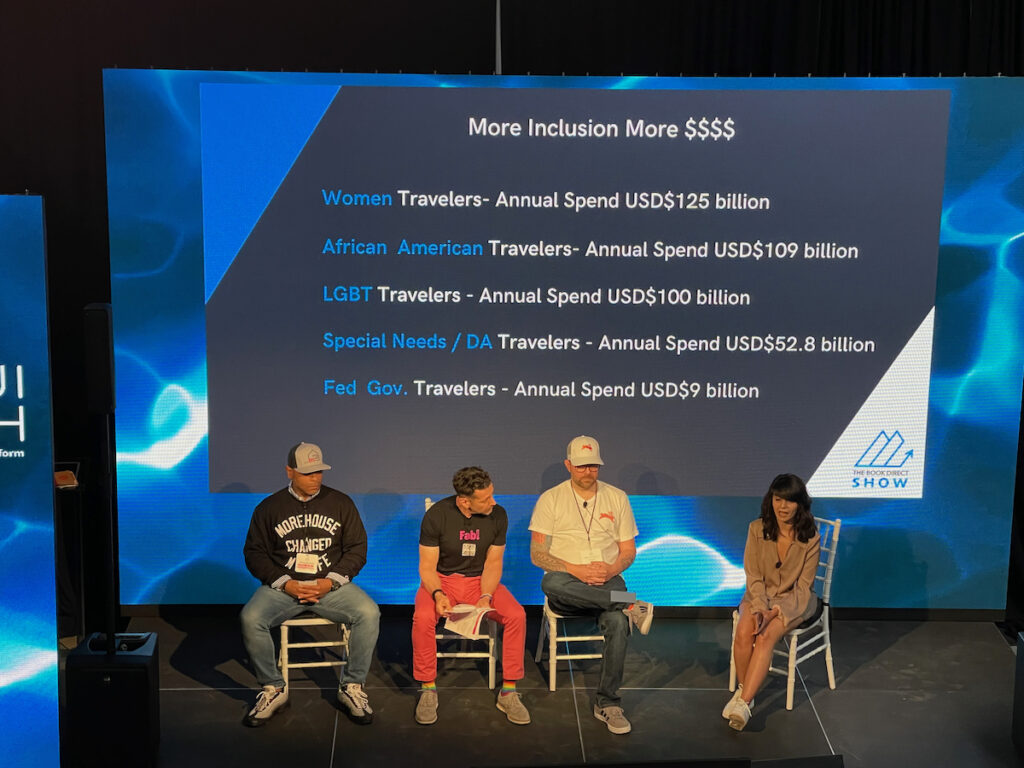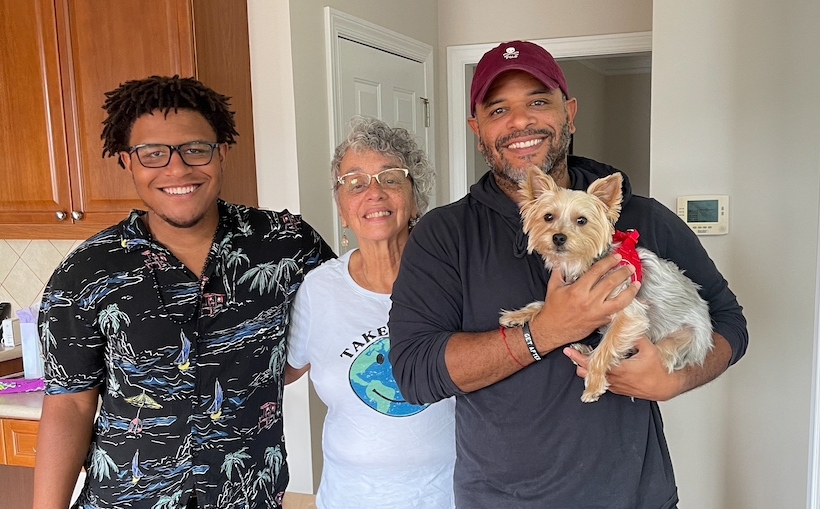Like most hosts and advocates, Mateo Bradford-Vazquez didn’t set out to have a career in short-term rentals.
Originally, he thought he was going to become a lawyer. Then, one of his high school mentors invited him to be a founding staff member of a school in the neighborhood where he grew up in Northeast Portland. Opening De La Salle North Catholic High School was a unique opportunity not just for Mateo but for the students in the neighborhood. Students worked internships to help pay for their education. Starting as early as their freshman class, they would have internships at places like Nike, the Portland Trailblazers, and law firms.
“These were kids that only saw downtown from a distance, and now they were in those buildings doing significant work,” Mateo said.
By the time the students graduated, they had four years of corporate office experience. Mateo’s first role there was to help the kids navigate and be prepared for those experiences. It wasn’t easy teaching 14-year-olds things like office decorum, but it was fun, he said. “It was super important to me because it was the neighborhood I grew up in.”
In the ‘80s and ‘90s, when Mateo was growing up there, Northeast Portland was an underserved area of the city. To some extent, it still is. “To be able to come from that and come back to it was hugely important for me,” Mateo said.
Extending a hand to others
After his time at De La Salle North, Mateo moved to LA to get out of the rainy northwest and take a role in logistics consulting, helping companies design their international supply chains.
Then, in 2011, his mom, Consuelo, had a significant fall that broke her foot and caused other injuries that forced her into retirement after a 50-year career as a nurse. Mateo became her caretaker and power of attorney. He realized through that process that his mom wasn’t as financially prepared for something like that as she could be and didn’t know much about generational wealth – and neither did Mateo.
A securities broker friend recommended he get his license in securities, finances, and wealth building. He did, and shortly after he began working in community wealth building, an approach to economic development that addresses wealth inequality by giving communities shared agency of their assets and investment decisions for a range of benefits at scale, including job creation, environmental sustainability, and community health.
Through that work, he learned a lot. “I was actually able to help my family quite a bit and helped my mom avoid some serious pitfalls,” he said.
To this day, he loves talking about financial health with anyone. “I feel like it’s one of the areas we really really fail in terms of educating our public around financial literacy.”
Creating wealth in a new community: short-term rentals
It was his passion for financial stability that led him into the short-term rental space. In 2017 he was hired by Rented, now a vacation rental revenue manager, but at the time, they had a fixed rent capital fund Mateo managed.
He moved to Mableton, an Atlanta suburb, in 2014 and splits his time between there and Portland, where he managed the Kenton Hotel. (At first, he would short-term rent his home in each city when he was in the other, but rules passed by each city and HOAs over the years have since made that impossible.)
Through hosting and Rented, Mateo found a lot to love about short-term rentals. “I love the fact that it’s hospitality,” he said. “I love the people, I love the relationships, I love where the business is growing, I love that it’s professionalizing, I love that it’s taking a global look inward.”
He noted that he tends to move into new industries when they’re in a unique place of growth or change. “Looking at all the growth and change that’s happening in short-term rentals, it’s an exciting time to be in this space, and there are so many opportunities to do so many impactful things.”

And impactful things he is doing.
One is his popular podcast, The No BS Short-Term Rental Podcast, in which he and co-host John Stokinger offer their refreshingly unfiltered take on vacation rental industry news, culture, and inclusion. (The duo is also launching a spin-off podcast called Derailed, a fictional murder mystery series set in the vacation rental space. The podcast launches March 2023 on all podcast platforms.)
Helping others navigate the DEI conversation to a more inclusive future
Diversity, equity, and inclusion (DEI) have always been important to Mateo, and it was in the conversational momentum following the killing of George Floyd in May 2020 that he dedicated even more energy to moving that conversation forward, especially within the tourism and vacation rental industries.
As a part of that effort, he and John became founding members of the Vacation Rental Management Association (VRMA) DEI Committee. Through the committee and elsewhere, Mateo often speaks and leads discussions about how the industry can become more inclusive and how doing so benefits everyone.
Mateo hosted the opening keynote on this subject in a fireside chat with Damon Lawrence, co-founder of Homage Hospitality, at Rent Responsibly’s winter RR Summit in December 2022. That same day, Airbnb released new data from Project Lighthouse, a six-year study on racial discrimination against people who attempted to book a property on the platform. The study, conducted in partnership with Color of Change, found that guests who were perceived as white had a 94.1% booking success rate. The success rate was lower for those perceived to be other races: 93.4% for Asian and Latino and 91.4% for Black.
Such figures aren’t unique to Airbnb. Black travelers spent nearly $109 billion on travel in the U.S. in 2019, according to MMGY Global. However, about 42% feel unwelcome at their destination, according to a survey of 4,800 Black travelers and 200 members of the National Coalition of Black Meeting Professionals (NCBMP).
Mateo and Damon’s session explored the history of racism in travel that still echoes today and how STR operators can ensure their properties and hosting practices are actively inclusive.
Watch the replay and access resources from their session here >
“You can go and look at the data: Inclusive businesses do better. They’re more competitive, like they have a better worldview, you know, they can hop on opportunities in effective manners, they take care get more and more, because they’re more inclusive.”
“But this is also the right thing to do,” Mateo added. “And if you say you believe in fairness, and you say you believe in these values, then it should be reflected in what you do, and what you say, and in your business practices.”
As a champion of DEI every day, Mateo routinely sees the pushback to having important conversations about these topics. But that’s precisely why these conversations are still needed.

“We have to get out of this cultural idea of somebody winning means you lose, or somebody being talked about means that you’re neglected. If we believe in equality, then it’s equality. And you can’t just selectively turn it on and off when it feels emotionally right to you.”
For those who are learning from the conversation and actively trying to be more inclusive and equitable, Mateo sees inclusivity as an active verb, not just a statement on a website or a core value on a piece of paper, though both are a good start. “Do you operate in an inclusive form?… Is it ingrained in your culture?… Is it reflected in the investments you make in your communities?” he asked.
Mateo advises hosts and property managers to take a look at everything from marketing photos and listings to recruitment practices and vendor selection, and not just for people of color but for people with disabilities, LGBTQ+ community members, and others and ask: Can they see themselves welcome in your properties or welcome to work with you?
“The key is to be deliberate about it,” he said. “It’s going to be a call to action that you’re going to have to live up to.”
But it’s not an overnight process. “This isn’t something that you’re just going to snap your fingers and put like a Six Sigma process in place, and it’s all going to be figured out,” Mateo said. It’s a journey that’s different for everyone. “I think if you’re deliberate in building something that you see as inclusive and fair, then you will be taking actions towards whatever that goal may be for you or your business.”
Despite the time it will take to see major progress, Mateo is inspired by the changes he has been able to see so far. The VRMA has become noticeably more diverse, he said, and companies like Casiola and Hostfully are on the leading edges of guest and staff inclusivity.
Mateo has a lot of hope and excitement for the future of short-term rentals. “I believe in the diversity of this industry,” he said. “I believe that this industry will only get better and will thrive more, the more diverse it is, the more welcoming and the more inclusive it is, the more it’s representative of what the core of hospitality is.”
Blazing a new path in advocacy
These intertwined threads of inclusivity and hospitality weave into another part of Mateo’s world: advocacy. He made his foray into advocacy in 2020 after a call from Rent Responsibly co-founder and CEO, Dave Krauss. Dave and others were monitoring a growing ordinance discussion in Atlanta, so he recruited Mateo to help organize local operators to participate.
Eager to be a part of the process from the start, Mateo became a founding board member of the Atlanta Metro Short-Term Rental Alliance (AMSTRA). The group had to first navigate the City’s unique distributed ordinance-making process through its Neighborhood Planning Units (NPUs), 25 neighborhood-based zones with “citizen advisory councils that make recommendations to the Mayor and City Council on zoning, land use, and other planning-related matters,” the City website states. That includes short-term rentals.
Following the NPU process and the remainder of an arduous ordinance discussion, two years later, the City of Atlanta voted to limit short-term rentals to an owner or long-term renter’s primary residence and one other dwelling unit, a far more restrictive outcome than Mateo and other advocates had been working for.
But as is usually the case with ordinances, that doesn’t mean the outcome is permanent. Mateo and others are continuing to work with the City for a more effective solution.
Regardless of the ultimate outcome for Atlanta, it doesn’t directly affect Mateo, who doesn’t operate a short-term rental in the city. When asked why he still cares about Atlanta’s outcome, he said, “I am in this fight because I love this industry, and what happened was wrong. My colleagues are in this space, our friends are in this space in this city.”
“That’s what I’m continuing to do right now to this day, working several levers to get this ordinance changed and to do much more than that – and to do it with a new approach and a new attitude, he said. “I’d like to see more people approach advocacy in the spirit of partnership versus the adversarial approach.”
He especially calls upon the professionals in this effort. “You’re the best of the best, you are what should be the shining example of what people want in this space,” he said.
He noted professional operators’ exemplary self-management in their care for surrounding neighborhoods, nuisance prevention practices, property maintenance and cleanliness, job creation, and hospitality to guests of a destination. He sees these as key assets in a mutually beneficial and long-lasting relationship with a city – a partnership.
“So when the city is in a bind, who do they go to in this space and ask: How do we deal with this? Who are the resources that can help us in this space? How do we get better education around this space in our city? How do we get people to do better?” he said. “If only there are organizations out there that can, right?” he added with a wink, referring to local short-term rental alliances.
“That’s what I’m for. I’m for having those conversations, working in a spirit of partnership, and putting a new light on advocacy.”
Conscious Capital and Staying for Good
That spirit of partnership is a recurring theme for Mateo. In 2020, Cliff Johnson, founder of Vacasa and Mateo’s former colleague at Rented, invited him to be an Advocate with Stay For Good. Stay for Good is a platform of community-first vacation rentals that connects travelers to listings in Uganda and other underserved markets to help hosts and their broader communities build their local economies through hospitality. Dollars spent at those rentals stay in the community for good, hence the name.
Just before the publication of this story, Mateo also accepted a position as Head of Fund Development for Guestor, a vacation rental investment platform that enables fractional shares of property ownership through its Diversified Fund. His mission: make the opportunity to invest in vacation rentals available and affordable to everyone.
These initiatives are just two of Mateo’s affinity for conscious capitalism, of which he calls himself an evangelist.
Coined by Whole Foods co-founder John Mackey and marketing professor Raj Sisodia, conscious capitalism is the philosophy that businesses should operate ethically and consider serving all of their stakeholders in their pursuit of profits.
Capitalism, in general, is sometimes associated with greed, but money is not the evil of it, Mateo said. “It’s what you do and how you make your money.”
He credits our culture for the mistaken win-at-all-costs mentality where one person winning financially means someone else has to lose. As with inclusivity, that’s not the case.
Mateo said he is competitive by nature, but for outcomes where no one loses and everyone wins. He said he got “drawn into” conscious capitalism and figuring out how to build better structures that generate money but also minimize environmental footprints, give back to communities, and other mutually beneficial outcomes.
But, looking all the way back to his first job passing educational and experiential capital to the next generation of Portland students at De La Salle and his early work in community wealth building, one could say the philosophies of conscious capital were always present, like a guide rope along a path. In many ways, Mateo himself is the guide rope for others.
Bringing it home
He hopes that rope extends, too, to the next generations of his own family. His son Eli Mateo Bradford, a 21-year-old Columbus State University student, will be the first in their family to inherit wealth instead of debt and liabilities. “His challenge from me will be to ensure that this wealth not only continues to grow but that the financial knowledge transfer also happens to ensure the wealth becomes multi-generational,” Mateo said.
“My hope for him is that he develops his own growth mindset around wealth-building that allows him to continue our family’s wealth legacy.”
•••
SUBSCRIBE TO GET UPDATES



